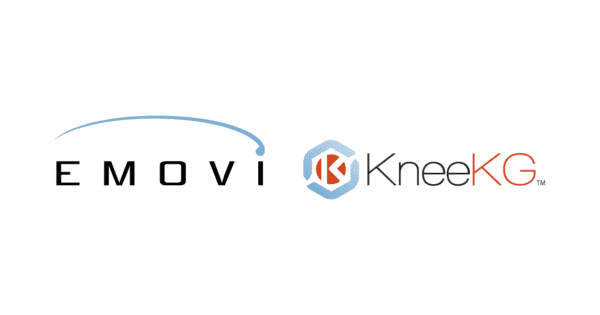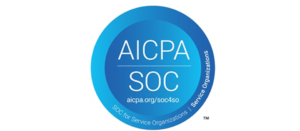How are your knees doing? Knee pain affects almost 20% of the population and becomes more common with age. However, current assessment and diagnostic methods face certain limitations like static images which make it difficult for healthcare providers to determine the causes of knee pain that normally occurs in the movement. This is where Emovi’s KneeKG comes in.
“KneeKG is like the electrocardiogram of the heart,” says Emovi CEO Michelle Laflamme. As a complement to static diagnostic images and visual assessment, KneeKG provides a 3-dimensional joint function assessment in a clinical setting, to provide physicians with key information that leads to a better understanding of the symptoms and guides and personalizes the treatment plan.
Like the ECG does for our hearts, the KneeKG will do for our knees. Learn more about Emovi and KneeKG below.

Who is Emovi?
Based in Montreal, Canada, Emovi provides the highest quality technology to improve patient care and healthcare delivery. After many years working for a major biopharma vendor, CEO, Michelle Laflamme decided to start her own company. She has successfully incorporated her own vision, philosophy, and values into her approach to solving this complex healthcare issue.
“Emovi stands for ‘Emotion, Movement, Vision’. Passion is the key to what we do and is a primary value for our company. This philosophy and drive have made us successful.”
Specifically, Emovi looks at advanced products for joint assessment and knee pain.
Why is knee pain so important?
“When it comes to knee pain, the biggest market is in knee osteoarthritis,” says Laflamme. “It’s one of the top 5 most costly medical issues to treat in the United States.”
According to Laflamme, one in five people will experience knee pain during their lifetime. This pain can last anywhere from two to seven years before it abates on its own. If a patient is a suitable surgical candidate, they may undergo knee replacement surgery. However, that isn’t always an option.
“Of the 28 million annual consultations in the U.S., less than one million will have surgery. That means there are 27 million patients with knee pain struggling to solve the problem. Trying different solutions can be costly and time consuming. We need better outcomes at a lower cost.”
What is KneeKG?
KneeKG is a 3D assessment tool that specifically examines joint function. It was developed by research teams across three Canadian universities. From there, Laflamme worked with the creators to commercialize the technology, bringing it out of the lab and putting into the hands of clinicians.
“I loved the idea of assessing knee movement. We know that risk factors are related to the knee’s function. The biomechanics of the knee can reveal and explain a lot of things,” says Michelle Laflamme.
Current assessment methods include palpating the knee, subjective manual testing, visually observing the joint, and referring to diagnostic x-ray images. However, these methods all have limitations. Touching or looking at an area may be subjective, and static x-ray images may not correlate with actual symptoms.
“KneeKG allows clinicians to understand the cause of symptoms patients are experiencing. That insight can be used to personalize the therapy. Clinicians can know exactly what can be done.”
With KneeKG, clinicians learn what is going on mechanically inside the knee and can accurately assess and diagnose the problem. For patients, this means fewer visits to the clinic and better and less costly interventions.
How is Emovi and KneeKG growing?
From 2012 to 2017, Laflamme and her team brought KneeKG to academic centers and research teams to test and publish results on the efficacy of the technology. As a result of this extensive research, there are now over 100 peer-reviewed papers and a large quantity of data supporting the use of KneeKG in clinical settings. This pre-commercialization launch led to KneeKG being used in over 40 clinics in 8 countries.
Getting KneeKG to market was not without its challenges. From EMR integrations, to HIPAA compliance, to building a complete solution for the care delivery, Laflamme found that building partnerships and developing the right team was a critical part of the journey.
“We found that good and dynamic partners such as MedStack are very important. For medical devices, getting from research to the hands of clinicians is quite a challenge because we are introducing a new way of assessing the patient. It is amazing to collaborate on delivering a complete solution that impacts all areas of care and have it move smoothly into implementation.”
Now, Emovi is moving KneeKG into the growth phase. “We want to install KneeKG in clinics and hospitals on a fee-for-use basis. We are also exploring pilot projects in clinics. Being part of accelerators such as the Smart Health Innovation Lab creates a fast-track to clinical adoption and integration, a valuable opportunity that we couldn’t pass up.”
Michelle Laflamme and her team are also looking into expanding internationally. While their focus is currently in the U.S., they have started to penetrate markets in the United Kingdom, Australia, France, and Switzerland.




